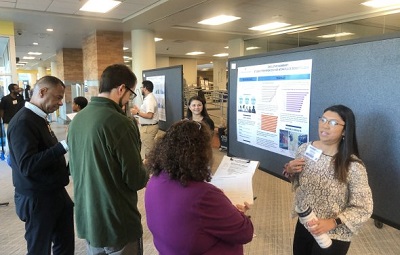Autonomy, Relatedness, and Advocacy in Parenting Youth with Type-1 Diabetes
Description/Abstract/Artist Statement
Self-Determination Theory is focused on interplay between extrinsic forces acting on persons and the intrinsic motive and needs of human beings. The three identified psychological human needs, according to self-determination theory, are competence, relatedness, and autonomy. This study grounded itself in Self-Determination Theory (SDT) with emphasis on Autonomy Supportive Environments. The study seeks to address how implementing the Self-Determination Theory (SDT) can influence a child’s diabetes management and their relationship with their environments. The purpose of this pilot study was to test interviews that can be replicated for further examination with parents of children with type-1 diabetes within the REACH program. Interview questions were prepared for data collection on perspectives of parents and healthcare providers. In November 2022, a parent of a child with Type-1 diabetes and an endocrinology pediatric nurse participated in pilot study interviews via Zoom. Researchers followed an interview protocol: mentioning the ten questions assigned to parents and seven questions assigned to healthcare providers, and mentioning the period of twenty-thirty minutes for interviews. Questions regarding the fostering of competence, relatedness, autonomy, choice provision, rational provision, perspective taking, and advocacy were asked following these mentions. Findings suggest parenting children with type 1 diabetes poses many challenges, but there is room for improvement by including healthcare providers and individuals within a child’s social environment through fostering advocacy, autonomy, and relatedness. Due to this study’s small sample size, more research is needed to further understand the impact of fostering autonomy supportive environments while parenting children with diabetes.
Faculty Advisor/Mentor
Alexis Barmoh, Rowan Williams
College Affiliation
College of Education & Professional Studies (Darden)
Presentation Type
Poster
Disciplines
Child Psychology | Developmental Psychology | Disability and Equity in Education | Early Childhood Education | Family and Consumer Sciences | Health and Physical Education | Recreation, Parks and Tourism Administration | Social Justice | Social Policy
Session Title
Poster Session
Location
Learning Commons Lobby @ Perry Library
Start Date
3-25-2023 8:30 AM
End Date
3-25-2023 10:00 AM
Includes Methods, Results, and Disussion
Autonomy, Relatedness, and Advocacy in Parenting Youth with Type-1 Diabetes
Learning Commons Lobby @ Perry Library
Self-Determination Theory is focused on interplay between extrinsic forces acting on persons and the intrinsic motive and needs of human beings. The three identified psychological human needs, according to self-determination theory, are competence, relatedness, and autonomy. This study grounded itself in Self-Determination Theory (SDT) with emphasis on Autonomy Supportive Environments. The study seeks to address how implementing the Self-Determination Theory (SDT) can influence a child’s diabetes management and their relationship with their environments. The purpose of this pilot study was to test interviews that can be replicated for further examination with parents of children with type-1 diabetes within the REACH program. Interview questions were prepared for data collection on perspectives of parents and healthcare providers. In November 2022, a parent of a child with Type-1 diabetes and an endocrinology pediatric nurse participated in pilot study interviews via Zoom. Researchers followed an interview protocol: mentioning the ten questions assigned to parents and seven questions assigned to healthcare providers, and mentioning the period of twenty-thirty minutes for interviews. Questions regarding the fostering of competence, relatedness, autonomy, choice provision, rational provision, perspective taking, and advocacy were asked following these mentions. Findings suggest parenting children with type 1 diabetes poses many challenges, but there is room for improvement by including healthcare providers and individuals within a child’s social environment through fostering advocacy, autonomy, and relatedness. Due to this study’s small sample size, more research is needed to further understand the impact of fostering autonomy supportive environments while parenting children with diabetes.


